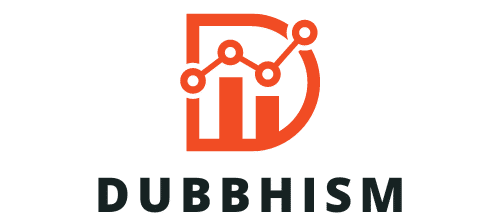In the digital age, the face of education has been radically transformed by the advent of online learning communities. These platforms have been instrumental in dismantling geographical and socioeconomic barriers, allowing individuals from various corners of the globe to access diversified knowledge pools with the mere tap of a screen. From Harvard University courses to web development boot camps, the scope of online learning opportunities is indeed extensive. But what underlies the success of these communities? The following sections delve into the contributing factors that have empowered online learning communities to flourish in an increasingly digitalized world.
Embracing Technological Advancements
In the nascent stages of the online learning community, its success hinged primarily on technological advancements. As the adage goes, necessity is the mother of invention. The need for widespread, accessible education fueled the development of technologies that could support this endeavor.
A découvrir également : What Are the Best Practices for Incorporating Public Art into Real Estate Developments?
The proliferation of the internet and digital devices has made online courses accessible to anyone with a stable internet connection. Innovations such as video conferencing, interactive whiteboards, and virtual reality have enriched the online learning experience, making it more interactive and simulating the traditional classroom environment. Moreover, artificial intelligence and machine learning have also paved the way for personalized learning experiences, adapting the learning materials to suit individual learners’ pace and understanding.
Fostering a Collaborative Learning Environment
A robust online learning community is not just about disseminating knowledge but also about creating an environment that encourages learner interaction and collaboration. The notion of ‘community’ entails a sense of belonging and mutual assistance, which are integral to a productive learning experience.
Dans le meme genre : What’s the Most Effective Way to Organize a Home Library by Genre?
Online platforms have integrated various tools to facilitate this collaborative learning environment. Discussion forums, group projects, and peer reviews are some ways through which learners can interact with each other. This collaborative approach not only enhances understanding through different perspectives but also fosters a sense of responsibility and accountability towards the community. Moreover, it also helps learners develop crucial soft skills like teamwork, communication, and problem-solving, which are highly valued in today’s job market.
Offering Flexibility and Personalization
One of the most striking attributes of online learning communities that contribute to their success is the flexibility and personalization they offer. Unlike traditional classroom settings, online learning allows learners to access course materials anytime, anywhere. This flexibility enables individuals to learn at their own pace and convenience, making education more accessible, especially for those juggling multiple responsibilities.
Moreover, many online learning platforms provide personalized learning paths based on the learner’s interests, skills, and career goals. This personalized approach empowers learners to tailor their education according to their needs, enhancing their engagement and motivation.
Keeping Up with Industry Trends
To stay relevant and effective, online learning communities need to be attuned to the latest industry trends and demands. By offering courses that align with current job market needs, these platforms can ensure that their learners are equipped with relevant skills that can boost their employability.
The rise of courses in data science, artificial intelligence, and digital marketing, among others, is testament to this. Online learning communities continuously update their course offerings to keep up with the rapidly evolving job market, thus contributing to their success.
Providing Quality and Affordable Education
Online learning communities have democratized education by providing high-quality, affordable learning opportunities. Many prestigious universities and educational institutions have collaborated with these platforms to offer courses at a fraction of the traditional cost. This affordability has opened doors for many individuals who were previously barred from pursuing education due to financial constraints.
Furthermore, these platforms have not compromised on quality despite the lower costs. Rigorous course materials, engaging teaching methodologies, and comprehensive assessments ensure that learners receive a robust education.
In conclusion, the success of online learning communities can be attributed to a multitude of factors – technological advancements, collaborative learning environments, flexibility and personalization, alignment with industry trends, and affordable, high-quality education. As the world continues to embrace digitalization, the future of these communities looks promising.
Leveraging Artificial Intelligence and Machine Learning
One of the most influential factors in the success of online learning communities is the adoption of artificial intelligence (AI) and machine learning technologies. These technologies have revolutionized how online courses are delivered and experienced, thereby contributing significantly to their popularity and success.
AI and machine learning have opened up new horizons for personalized learning. These technologies can analyze a learner’s performance, habits, and preferences to tailor the learning experience to their specific needs. For instance, AI-powered systems can recommend courses, suggest learning paths, and adjust the difficulty level of the coursework based on the learner’s progress. This personalization makes learning more engaging, effective, and enjoyable, thereby encouraging learners to continue their online education.
Additionally, AI and machine learning have also enabled automated grading and feedback systems. These systems can evaluate assignments, tests, and quizzes instantly and provide immediate, detailed feedback. With instant feedback, learners can quickly identify their mistakes and areas of improvement, thereby enhancing their learning experience.
AI-powered chatbots have also emerged as invaluable tools in online learning communities. These bots can answer learners’ queries round the clock, provide course recommendations, and assist in troubleshooting technical issues, ensuring a seamless and convenient learning experience.
Maintaining a Balance between Synchronous and Asynchronous Learning
Another crucial factor contributing to the success of online learning communities is the balanced blend of synchronous (real-time) and asynchronous (self-paced) learning. This hybrid approach caters to a wider audience by accommodating diverse learning styles and preferences.
Synchronous learning sessions, such as live webinars and video conferences, provide real-time interaction between learners and educators. These sessions replicate the traditional classroom experience, enabling learners to ask questions, clarify doubts, and engage in discussions on the spot. They also foster a sense of community, making learners feel connected and involved.
On the other hand, asynchronous learning elements, like recorded lectures, e-books, and discussion forums, allow learners to access course content at their convenience. They can learn at their own pace, revisit course material as often as they need to, and engage in discussions at a time that suits them. This flexibility makes online learning more accessible and manageable, especially for adult learners juggling work and family responsibilities.
In conclusion, the success of online learning communities is a testament to the power of technology in transforming education. With the integration of AI and machine learning, a balance between synchronous and asynchronous learning, and other factors highlighted earlier, these platforms have redefined what it means to learn. As we move forward in this digital era, there’s a lot to look forward to in the realm of online learning communities. Their continued evolution promises exciting possibilities for making education even more accessible, personalized, and engaging.











